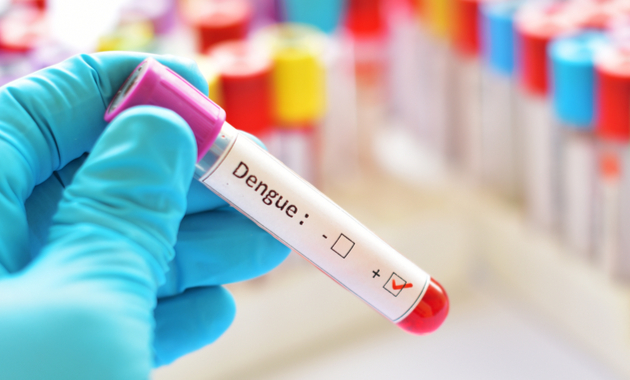
If a person is down with fever, muscle pain, and weakness or has any other symptoms of dengue, then it is wise to get a blood test done. The only way to detect dengue is through a lab test. However, before you consider a blood test for dengue, you need to know about the different types of blood tests available because depending on the time of infection and the appearance of the symptoms, the test results may differ. Here is a quick guide for dengue lab tests that can help you.
Tests to diagnose dengue
In most cases, a complete blood count is recommended if your doctor suspects dengue. However, it is a nonspecific test because it doesn’t help to confirm the presence of the dengue virus or detect the type of virus.
To detect the presence of the dengue virus in the blood, you need to undergo definitive tests which include non-structural protein 1 (NS1) test, Immunoglobulin G/ Immunoglobulin M test or a real time polymerase chain reaction (RT-PCR) test.
Here are the common tests recommended to diagnose dengue:
1. Dengue NS1 Antigen
This is a blood test to detect the dengue virus early in the course of an infection.
When to get the test done: It should be done within the first five days of the appearance of symptoms because after five-seven days, the chances of false positive and negative results are high.
Limitations: This test does not differentiate between different dengue serotypes. It is also found that the sensitivity of the test is higher (more than 90%) in primary infection (first time infection) than in secondary infection.
When can you get the results: The test results can be obtained within a day. The NS1 Antigen test is comparatively cheaper than other lab tests for dengue.
2. Immunoglobulin M (IgM)
This test looks for IgM (antibodies) in the blood, which appear in the early course of the disease (acute infection). The test can also help to differentiate between primary (first time infection) and secondary (second time infection with any of the dengue virus) infection.
When to get the test done: It is advised to undergo a dengue antibody IgM test, if you are experiencing symptoms of dengue for more than a week or 10 days. This is because IgM levels are detectable in 50% of patients by day 3 after the onset of illness, which increases to 80% by day 5 and 99% by day 10.
Limitations: This test is not advised if you have a secondary dengue infection as IgM levels are significantly low (or even undetectable) in secondary infection.
When can you get the results: Depending upon the method used to detect the antibodies, you can get the test results within 30 minutes (IgM rapid test) or around 1-2 days (IgM ELISA) and it may vary for each lab.
3. Immunoglobulin G (IgG)
The test is used to detect infection in the later course of the disease because the level of IgG in the blood tends to increase slowly. Usually, the level increases six to ten days after the infection and the antibodies can remain in the blood for around 90 days or for the rest of your life.
To distinguish between primary and secondary dengue infections, IgG/IgM ratio test is commonly used.
When to get the test done: You can get an IgG antibody test for dengue after a week. You can also get the test done after 15 days as these antibodies can still be detected in the blood several months after the infection.
Limitations: This test is not advised for acute infections.
When can you get the results: To get the reports, you may have to wait for at least seven days or more.
4. Dengue RNA PCR test
It is a primary test used to detect dengue virus in the early course of the infection. A positive result not only confirms the infection but also helps to identify the different serotypes of the dengue virus. The test is around 90% sensitive and 95% specific.
When to get the test done: The dengue RNA PCR test can provide positive results if the test is done within five days after the symptoms start to appear. It detects the viral genome (the genetic material of the virus) in the blood.
Limitations: The test can only be performed in certain laboratories.
When can you get the results: The results for dengue RNA PCR test can be obtained within a day or two after getting tested.
So if your doctor has advised a test for the diagnosis of dengue fever or if you are planning to undergo a test because you suspect you might have dengue, book the correct diagnostic test after monitoring the symptoms. Here are few common FAQs on dengue answered.
(The article is reviewed by Dr. Shilpa Chugh Garcha, General Physician)
References:
1. Mutheneni SR, Morse AP, Caminade C, Upadhyayula SM. Dengue burden in India:
recent trends and importance of climatic parameters. Emerg Microbes Infect. 2017
Aug 9;6(8):e70.
2. Laboratory Guidance and Diagnostic Testing. Dengue. Centre for Disease Control and Prevention.
3. Chan HBY, How CH, Ng CW. Definitive tests for dengue fever: when and which
should I use? Singapore Med J. 2017 Nov;58(11):632-635.
4. Dengue: Guidelines for Diagnosis, Treatment, Prevention and Control: New Edition. 2009.